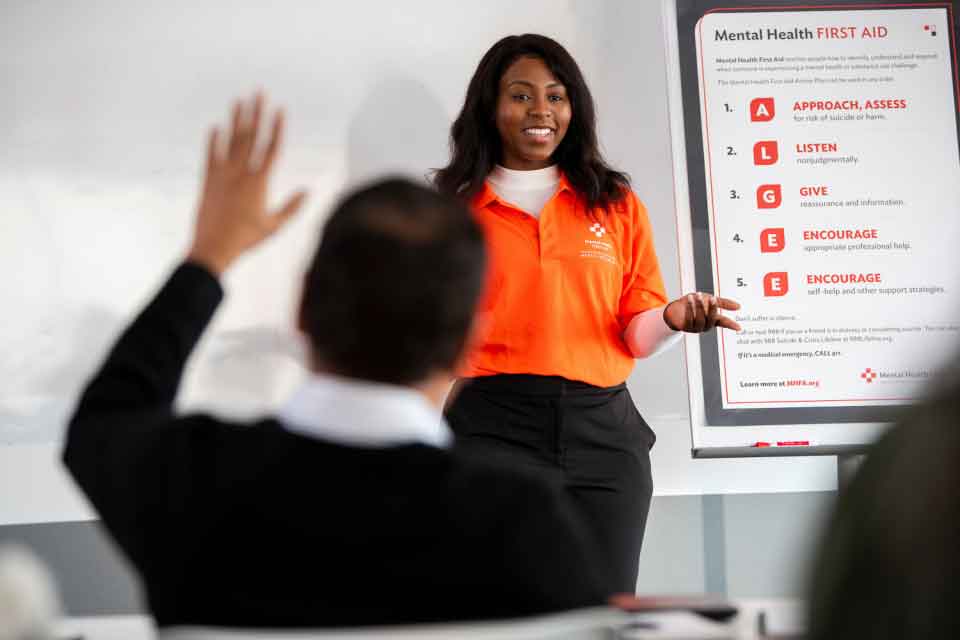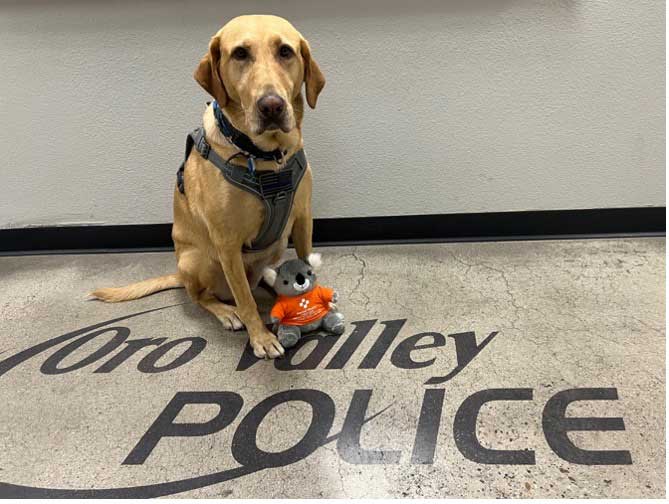
Valley High School has been a part of the wellness movement for a couple years here in Las Vegas but the stigma surrounding mental health has never gone away. Our principal, Ramona Esparza, found an amazing opportunity to partner with the Born This Way Foundation and Mental Health First Aid to bring a new pilot program that focused on skills to help destigmatize mental health for teens. In late February, eight pilot schools got together to train and help launch the teen Mental Health First Aid curriculum across the nation. Valley High School was tasked with presenting the curriculum to our 600+ senior class students and helping them understand the unique impact this would have.
Throughout March and April, many meetings were held to discuss how this curriculum might impact our students own mental health and how we should prepare for the student responses at the end of each session. The topics can be intense and we wanted to provide the correct check-ins for students who needed to connect to an adult. Great care was put into this process and yet I now realize these students were more than ready to have the conversation; they did not just learn about mental health, they led the conversation during each training. The training was not just about educating teens but also helping the trainers with some of their own stigma surrounding mental health. During the second day, I realized that we can use this program as a start for the bigger conversation around mental health with teens.
The impact of this program was immediate and far-reaching for these students. The feedback was focused on how most of the Valley High School seniors wished they had this training earlier to help them better cope with the stress and pressure of high school. It was a revelation to the trainers to learn that these young adults were self-aware enough to realize that tMHFA program wasn’t just beneficial for their future, they recognized moments in their past that they could have used the training as well.
But some of the biggest impacts I saw came from the effect the program had on the magnet program I lead at Valley High School, the International Baccalaureate (IB) program. The IB program is made up of high-achieving students who struggle with the balance of work and stress. After the tMHFA training, many of our students made the initial step to have conversations with their friends and with their own parents.
One student in particular discussed with us how nervous she was to share her struggles with her parents. She was concerned her parents would respond with the kind of stigma we discussed in the training and I reminded her of the 5-step Action Plan from the lessons. After our conversation, she went home and found that her parents understood and made an immediate plan to provide support and connect her with the proper mental health supports. I kept realizing that people are ready for these conversations, we have to just get the training out there and it will continue to break down the stigma that surrounds mental health.
The overall impacts are in the conversations and the small moments I now see between students. Words like “therapy” that would have never been said out loud, are now commonplace with peers and adults. The largest impact is that we went from a school to a community with a network of support for each other.
These changes will one day, save a life.



